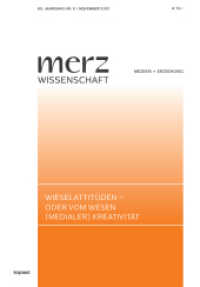基本説明
This book examines the contribution of various recent developments in linguistics to contrastive analysis. The articles range across a broad gamut of languages, with most attention going to the languages of Europe. They show how advances in theory and computer technology are together impacting the field of contrastive linguistics. From the Contents: Subjective Construal as a 'fashion of speaking' in Japanese (Yoshihiko Ikegami).
Full Description
This book examines the contribution of various recent developments in linguistics to contrastive analysis. The articles range across a broad gamut of languages, with most attention going to the languages of Europe. They show how advances in theory and computer technology are together impacting the field of contrastive linguistics. Part I focuses, from a broadly functional-cognitive viewpoint, on the close link with typology, stressing the importance of embedding the treatment of grammatical categories in their contexts of use. Part II turns to methodological issues, exploring the enormous potential offered by parallel, computer-accessible corpora to contrastive linguistics and to enhancing the testability, authenticity and empirical adequacy of cross-linguistic studies. Part III is concerned with contrastive semantics, ranging from individual items to entire grammatical constructions, and shows how meanings are coupled to language-specific cognitive strategies and even to cultural differences in subjective awareness and the fashioning of personal identity.
Contents
1. Contributors; 2. Abbreviations used in glosses; 3. Introduction (by Gomez Gonzalez, Maria de los Angeles); 4. Part I. Grammatical categories in contrast; 5. Ways of impersonalizing: Pronominal vs verbal strategies (by Siewierska, Anna); 6. Construing reference in context: Non-specific reference forms in Finnish and French discussion groups (by Helasvuo, Marja-Liisa); 7. The contrast between pronoun position in European Portuguese and Castilian Spanish: An application of Functional Grammar (by Mackenzie, J. Lachlan); 8. Modals and typology: English and German in contrast (by Salkie, Raphael); 9. Part II. Contrastive linguistics and corpus studies; 10. Parallel texts and corpus-based contrastive analysis (by Barlow, Michael); 11. Machine translation and human translation: Using machine translation engines and corpora for teaching and research (by Maia, Belinda); 12. 'Basically speaking': A corpus-based analysis of three English adverbs and their formal equivalents in Spanish (by Butler, Christopher S.); 13. Causative make and faire: A case of mismatch (by Gilquin, Gaetanelle); 14. Part III. Meaning and cognition from a contrastive perspective; 15. Universal human concepts as a basis for contrastive linguistic semantics (by Goddard, Cliff); 16. Subjective construal as a 'fashion of speaking' in Japanese (by Ikegami, Yoshihiko); 17. Grammatical metonymy within the 'action' frame in English and Spanish (by Ruiz de Mendoza Ibanez, Francisco Jose); 18. Towards a constructionist account of secondary predication with verba dicendi et declarandi in English and Spanish (by Gonzalvez-Garcia, Francisco); 19. Index of terms; 20. Index of languages; 21. Index of scholars








